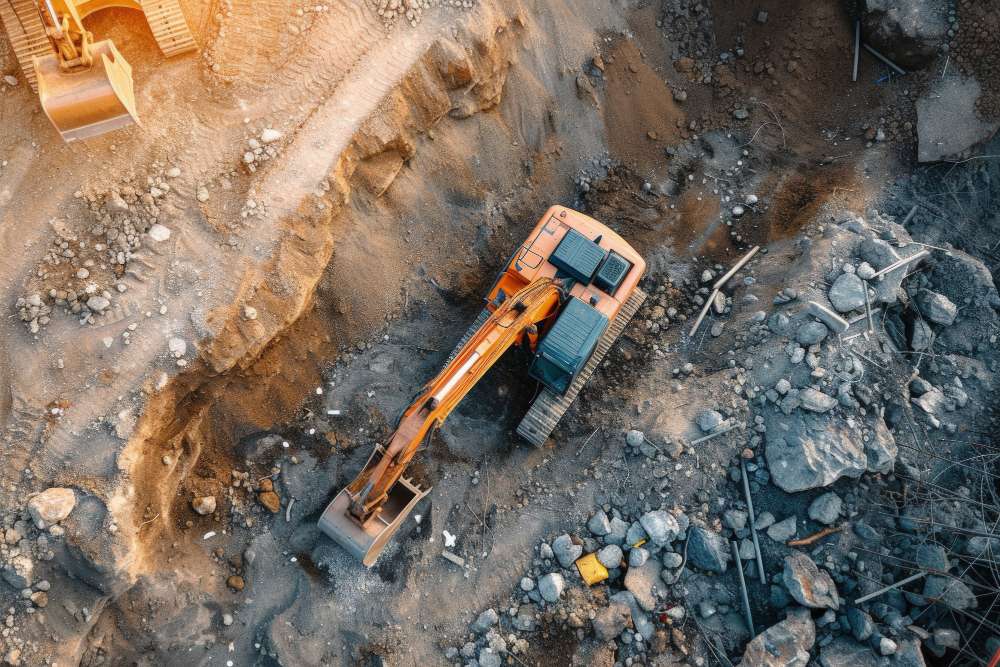Lithium mining has become a hot topic in recent years as the demand for electric vehicles and renewable energy solutions continues to rise. Just last week The Sunday Times ran a deep dive on the white gold rush that lithium has become. While lithium has been touted as a key component in the fight against climate change, one area of increasing concern is the lithium mining environmental impact.
From land degradation to water pollution, lithium mining can have a significant impact on surrounding ecosystems and local communities. It’s important to understand the full scope of these impacts and explore ways to mitigate/remediate/compensate them. In this article, we’ll take a closer look at the environmental impact of lithium mining and what you need to know about this critical industry.
Lithium Mining Environmental Impact, Risks and Concerns
Lithium mining is a complex process that involves the extraction of lithium from underground brine deposits or hard rock deposits. While the process of extracting lithium is relatively straightforward, it can have significant environmental impacts. One of the major concerns associated with lithium mining is the impact on water resources.
Effects on Water Resources
Lithium mining requires large amounts of water, which can put a strain on local water supplies. In addition, the process of extracting lithium can result in the contamination of water sources, which can have serious consequences for both the environment and human health. The chemicals used in the mining process can also seep into groundwater and surface water, leading to pollution and ecosystem damage.
To mitigate these risks, some mining companies are exploring ways to reduce water usage and recycle wastewater. For example, some companies are using brine extraction methods that require less water than traditional mining methods. Others are investing in water treatment technologies to ensure that wastewater is properly treated before being discharged.
Air Pollution and Greenhouse Gas Emissions
Another concern associated with lithium mining is the release of air pollutants and greenhouse gases. The mining process requires the use of heavy machinery and equipment, which can emit pollutants into the air. In addition, the transportation of lithium products can also contribute to air pollution and greenhouse gas emissions.
To address these concerns, some mining companies are exploring ways to reduce their carbon footprint. This includes investing in renewable energy sources, using electric vehicles in mining operations, and improving the efficiency of equipment and machinery.
Impact on Local Ecosystems and Wildlife
Lithium mining can also have a significant impact on local ecosystems and wildlife. The disturbance of soil and vegetation can lead to habitat loss and fragmentation, which can have serious consequences for biodiversity. In addition, the use of chemicals and heavy machinery can also impact the health and survival of local wildlife.
To mitigate these risks, some mining companies are working to minimize their impact on local ecosystems. This includes implementing reclamation and restoration programs, protecting critical habitat areas, and investing in biodiversity conservation initiatives.
Lithium Mining and Indigenous Communities
In addition to environmental concerns, lithium mining can also have a significant impact on Indigenous communities. Many lithium deposits are located on traditional Indigenous lands, which can lead to conflicts over land rights and resource use. In addition, mining activities can disrupt cultural practices and traditional ways of life.
Conflicts over mineral extraction, especially in poor or developing countries, have a long history. Large foreign corporations have been accused of making enormous profits while providing few benefits to the countries and local communities in the region. These conflicts have often led to violence and social unrest.
To address these concerns, some mining companies are working to engage with Indigenous communities and incorporate their perspectives into mining operations. This includes the development of partnerships and consultation processes, as well as the implementation of Indigenous-led land management practices.
Lithium Mining Companies
The top 10 lithium mining companies can be found below:
- Albemarle Corporation
- SQM (Sociedad Química y Minera de Chile)
- Ganfeng Lithium
- Tianqi Lithium
- Livent Corporation
- Lithium Americas Corp.
- Galaxy Resources Limited
- Pilbara Minerals Limited
- Orocobre Limited
- Nemaska Lithium Inc.
Greenwashing in the Lithium Mining Industry
According to our data, the majority of lithium mining companies score high on environmental scoring, which seems extremely unlikely at this juncture. This in part will be due to the various announcements put out with regards to commitments to addressing their environmental impacts. While there is some progress being made in climate-positive mining practices there are still huge challenges yet to be overcome.
It is important to recognise the concerns and criticisms that have been raised regarding the greenwashing practices of certain lithium mining companies. Greenwashing refers to the act of conveying a false or misleading impression of environmental responsibility. In the context of lithium mining, some companies have faced scrutiny for overstating their sustainability practices (the idea that lithium mining in itself can be a sustainable practice is also highly questionable, climate-positive is a more realistic goal) or downplaying the potential environmental impacts associated with lithium extraction.
When reviewing scores, it is important to evaluate each company individually and consider factors such as their environmental track record, transparency in reporting, adherence to regulations, and participation in sustainability or climate-positive initiatives. Engaging in responsible and climate-positive mining practices, implementing robust environmental management systems, and supporting the development of a climate lithium supply chain are crucial steps for companies to counter any accusations of greenwashing and truly contribute to the transition to clean energy.
As the demand for lithium continues to grow, it is essential for stakeholders to hold mining companies accountable and ensure that their operations align with climate-positive practices and genuine environmental stewardship.
Climate-Positive Mining Practices
Climate-positive mining demands a holistic approach that combines technological advancements, strict environmental regulations, and strong social engagement. It involves minimizing the ecological footprint of lithium extraction through climate-positive practices, including efficient water usage, energy management, and waste reduction. Additionally, it necessitates transparent supply chains, ensuring that the extracted lithium meets stringent environmental and ethical standards.
To achieve climate-positive mining, collaboration among governments, mining companies, and environmental organizations is crucial. Governments should establish comprehensive regulatory frameworks that prioritize sustainability and enforce rigorous monitoring and reporting of mining activities. Mining companies must adopt responsible practices, investing in advanced technologies and engaging in community dialogue to address local concerns. Environmental organizations play a critical role in advocating for climate-positive practices and monitoring compliance, ensuring that mining operations align with climate-positive goals.
At Permutable AI, we have been supporting the work of NGO Green Cross United Kingdom with our data and insights, and their commendable work around advancing the climate-positive agenda. Said Ruy Campos Dugone, Executive Director of Green Cross United Kingdom, “Lithium has emerged as one of the metals that best represents the energy transition progress, particularly for those who are betting on electric vehicles (EVs). Therefore, it should come as no surprise that lithium has gained international attention, even provoking geopolitical discussions in which the western axis loses significant strategic advantages in comparison to the eastern axis – led by China.”
He continued, “Despite these subjects, responsible and secure lithium extraction must be practised, giving socio-environmental issues precedence over commercial ones in order to accomplish climate-positive mining with minimal risks. Since metals and minerals are non-renewable resources, their traceability is crucial if they are to be incorporated into the circular economy model in the future. There are not many cases of extracting mining having a positive impact on the environment, thus at Green Cross UK, we advise at least going well beyond the existing legal frameworks in the countries where lithium extraction is practised.”
By prioritizing responsible and secure lithium extraction, we can pave the way for a climate-positive and equitable energy transition. Embracing climate-positive mining not only contributes to reducing carbon emissions but also protects ecosystems, respects local communities, and supports the circular economy. As we work towards a greener future, let us collectively strive for the highest environmental and social standards in the mining industry.
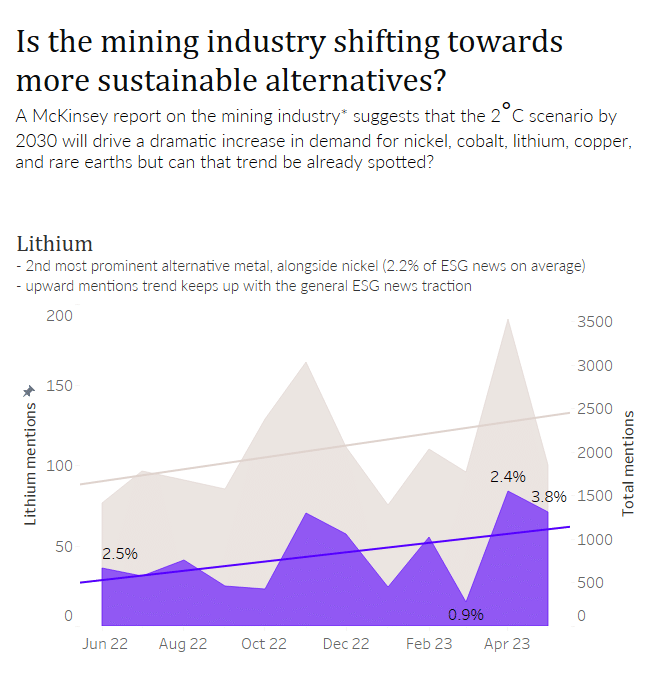
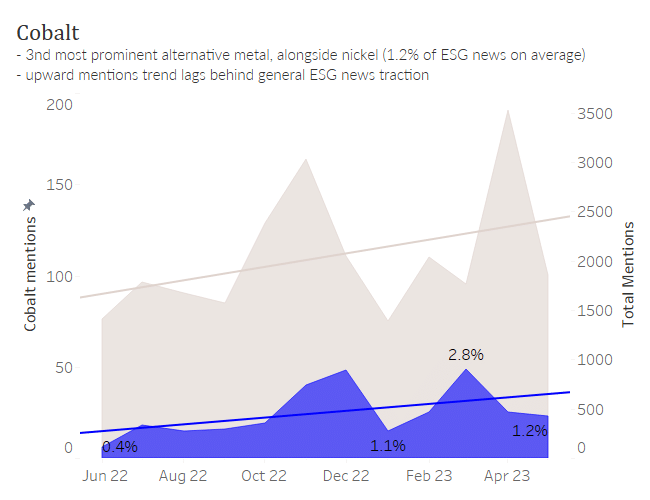
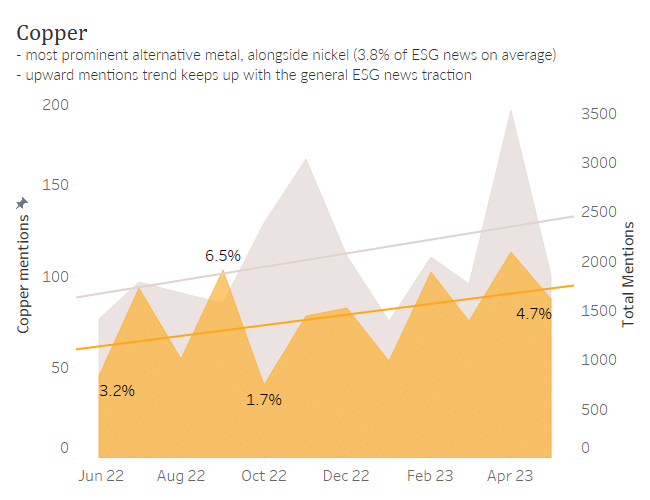
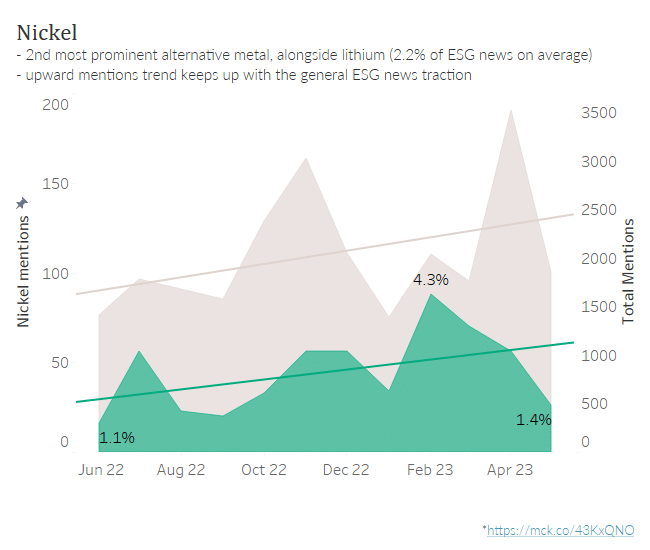
Alternatives to Lithium Batteries
While lithium batteries are currently the most widely used type of battery in electric vehicles and renewable energy systems, there are also alternatives that are being developed. For example, some companies are exploring the use of solid-state batteries, which can offer higher energy densities and longer lifetimes than lithium batteries. Other companies are exploring the use of other materials, such as sodium or magnesium, in battery production.
While these alternatives are still in the early stages of development, they offer potential opportunities to reduce the environmental impact of battery production and mining.
The Future of the Lithium Industry
The future of the lithium industry will depend on a range of factors, including the demand for electric vehicles and renewable energy solutions, as well as advances in climate-positive mining practices. While there are challenges associated with lithium mining, there are also opportunities to develop climate-positive and responsible mining practices.
As the demand for renewable energy solutions continues to grow, it will be important to ensure that the environmental and social impacts of lithium mining are carefully considered and addressed. By working together, mining companies, governments, and communities can develop solutions that balance the need for lithium with environmental responsibility.
Conclusion: Balancing the Need for Lithium with Environmental Responsibility
Lithium mining is a critical industry that plays an important role in the transition to a low-carbon economy. However, it is also an industry that can have significant environmental and social impacts. It is important to understand these impacts and explore ways to mitigate them.
By investing in climate-positive mining practices, engaging with Indigenous communities, and exploring alternatives to lithium batteries, we can help to reduce the environmental impact of lithium mining and ensure that it is done in a responsible and climate-positive way.
Next Steps
Are you interested in learning more about the environmental impact of lithium mining? Take action today and request more data from Permutable AI to deepen your understanding of this critical issue.
By accessing additional information from Permutable AI, you can gain valuable insights into the sustainability challenges and opportunities within the lithium mining industry. This data will empower you to make informed decisions, drive meaningful conversations, and contribute to the global effort of creating a more sustainable future.
Don’t miss out on this opportunity to expand your knowledge and explore the groundbreaking work being done by Permutable AI. Contact us now to request more data on lithium mining and discover how our expertise can support your sustainability initiatives. Together, we can pave the way for responsible and environmentally conscious practices in the mining sector.
